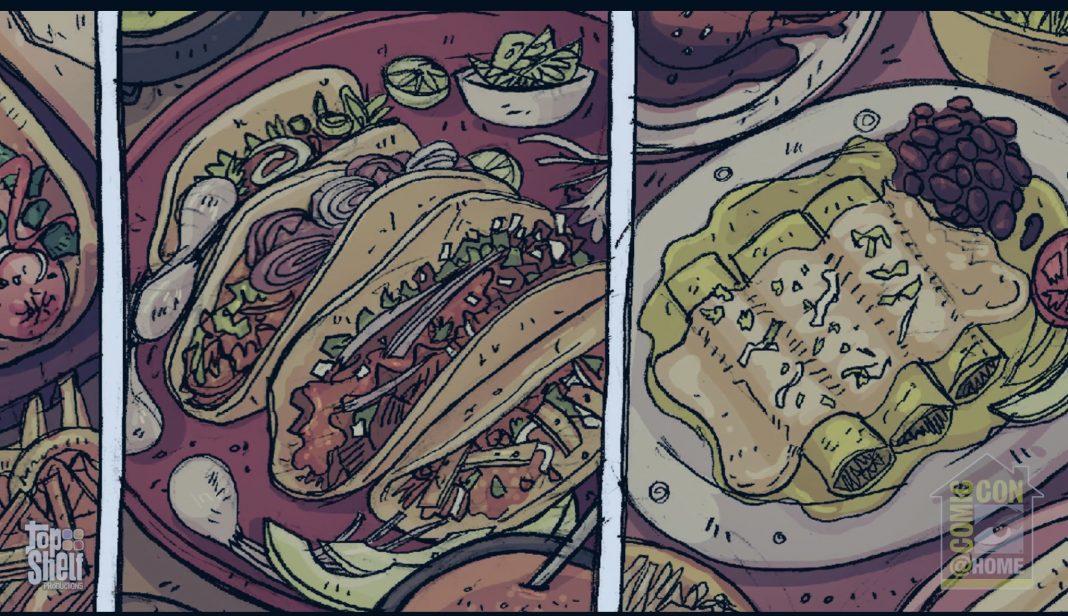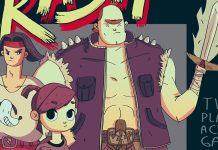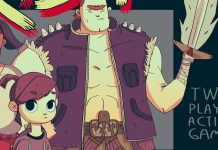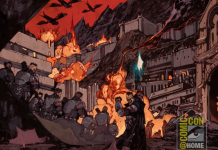In a fun and engaging departure from the normal talking heads on Zoom, moderator Nikki Hendry (@ThatHangryGurl) took a discussion about food and art in a totally different direction. During the panel “Comics Kitchen,” Hendry cooked up a batch of beef and mushroom enchiladas while having Edgar Camacho (Onion Skin) and James Albon (The Delicacy) draw what she was cooking as she interviewed the two men.
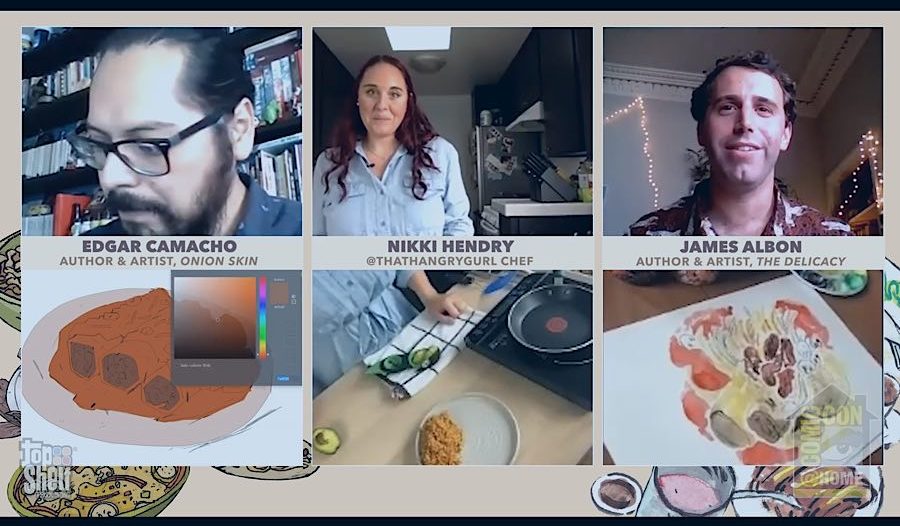
Hendry chose mushrooms as the themed ingredient for “Comics Kitchen” because of the role the ingredient played in Albon’s story. Camacho discussed the use of the ingredient in Mexican cooking, particularly as a key ingredient in Aztec Soup. Albon, on the other hand, surprised Hendry with his reaction to the ingredient, despite mushrooms being so front and center in his book:
“Writing The Delicacy came from a funny place to me because I actually don’t like mushrooms. My sort of dislike for them was the jumping off point. I wanted to write something about a food I had a strong reaction to, but the reaction was disgust. So writing the book from a strong place for me, but I’m not a mushroom person at all.”
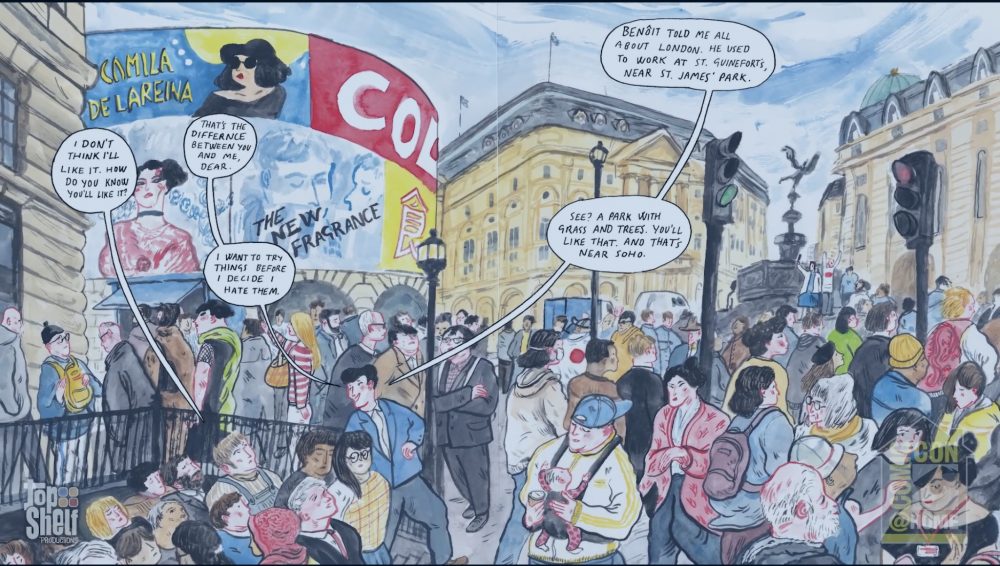
As Hendry added diced white onions and white mushrooms to her browning beef mixture, along with cumin, paprika, ground chili powder and a “secret” spice blend, she asked Camacho about the characters of his book who start a food truck business, despite not knowing how to cook. Camacho had this to say about the experience about Rolando’s and Nera’s journeys in starting the business:
“It’s a good metaphor, like the truck is abandoned and rusted like the main character Rolanda. With Nera they fix it, and they start moving with the food truck along the way. So it’s a good metaphor—finding something that needs to be fixed, fix it on the way and then enjoy the ride. That’s the whole story in the book. Enjoy the ride even if you don’t have success in it. If you like to cook, go ahead and do it. If you like comics, go ahead and draw. It doesn’t matter if you are good or not. It’s just step forward and do it.”
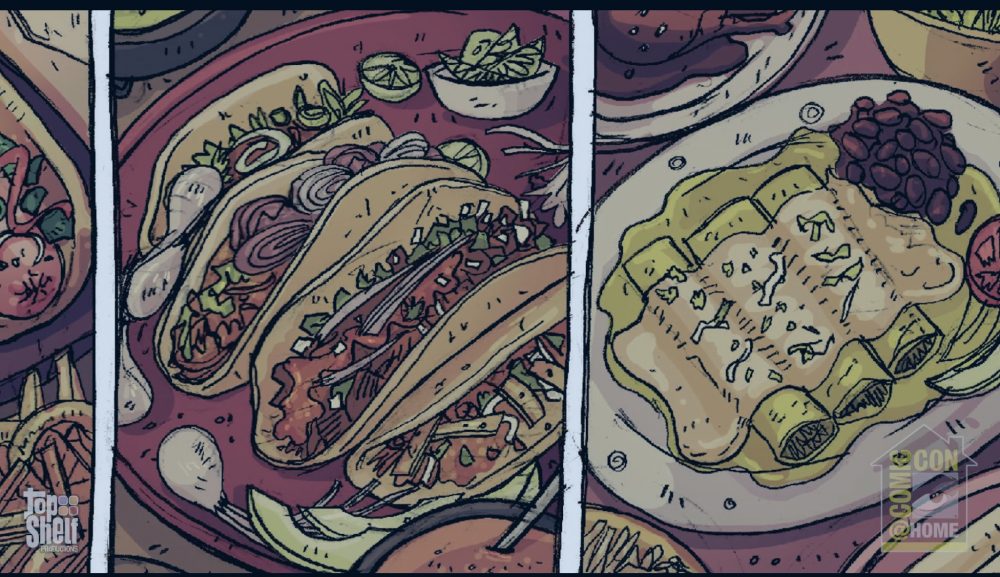
A big part of both stories is how successes lead to problems for the individuals involved. In Onion Skin, a biker gang who enjoys a monopoly on the food truck biz feels threatened by Rolando’s and Nera’s burger truck and begin to harass them. In The Delicacy, Tulip suffers a psychological breakdown when the pressure for perfection leads to moral compromises that threaten to destroy everything he loves.
As Hendry prepared to dish up the meat mixture into the corn tortillas for the enchilada, she engaged Camacho in a discussion of tortilla types. Camacho proved quite knowledgeable about the different uses of corn tortillas. Albon, however, admitted to never having eaten an enchilada and his lack of experience with Mexican cuisines. He did, however, find gastronomy as an apt metaphor to describe the social dynamics at play:
“I think it’s such an interesting world because it combines obviously something we need to do to live. Eating is such a fundamental part of being alive. At the same time you have the world of fine dining where we’ve dressed it up as this complex cultural thing that means so many different things about who we are, who we want to be in society, what we aspire to be, where we come from, so I think exploring that kind of tension in cooking that’s something we do everyday, and eating that’s something everyday, and contrasting that with this world that’s sort of glamorous and wealthy and extremely high pressure to me is just such an interesting situation and such fertile ground for finding interesting character dynamics and interesting tensions between characters.”
For Camacho, food is a communal act that conveys love, a metaphor to the way people, particularly immigrants, give flavor to other people:
“Here in Mexico, it’s very traditional. When you eat, you sit in a big table with all the family—the grandma, the grandchildren. That’s what I love about food. To bring people together, every social interaction has to do with food.”
Albon also drew parallels between cooking and drawing:
“To me, I always like to approach drawing and writing by laying down the biggest strokes first—big areas of color and then adding the other details. I believe cooking is a little bit like that.”
In the final minutes of “Comics Kitchen,” the creators discussed the creative process. Camacho, whose book took three months to go to market, enjoyed creating scenes without dialogue as a way of expressing himself and setting the mood for other parts of the book. Albon’s book took two and a half years to come to fruition owing to the research and prep work he completed while scripting his story. His favorite parts had to do with drawing the big expanses of restaurants. And he had this to say about visual storytelling:
“I think as graphic novelists, we’re sort of lucky to express that sill of telling a story without words, and it’s quite nice to have creative control over your process, to be able to just make something beautiful but that serves a narrative purpose and really indulge your drawing without having to rely on words.”
And finally, the results of their drawings of Hendry’s enchiladas:
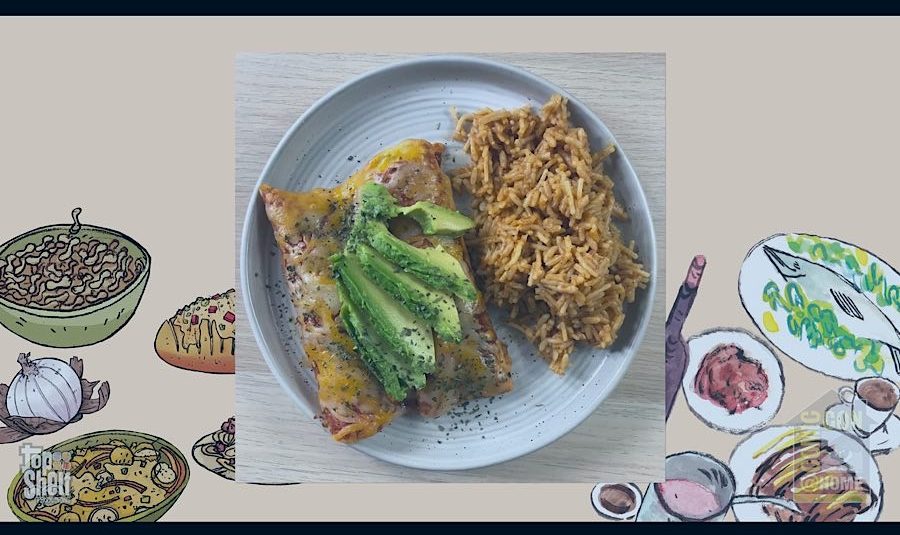
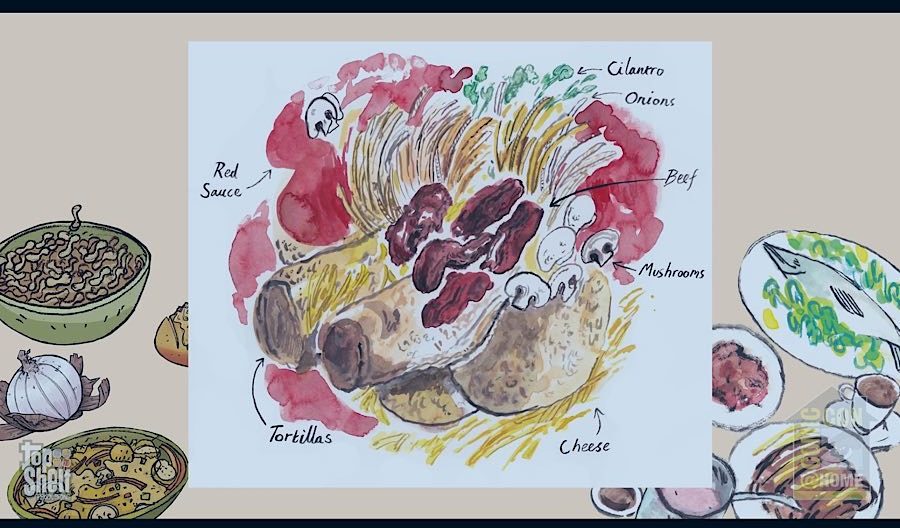
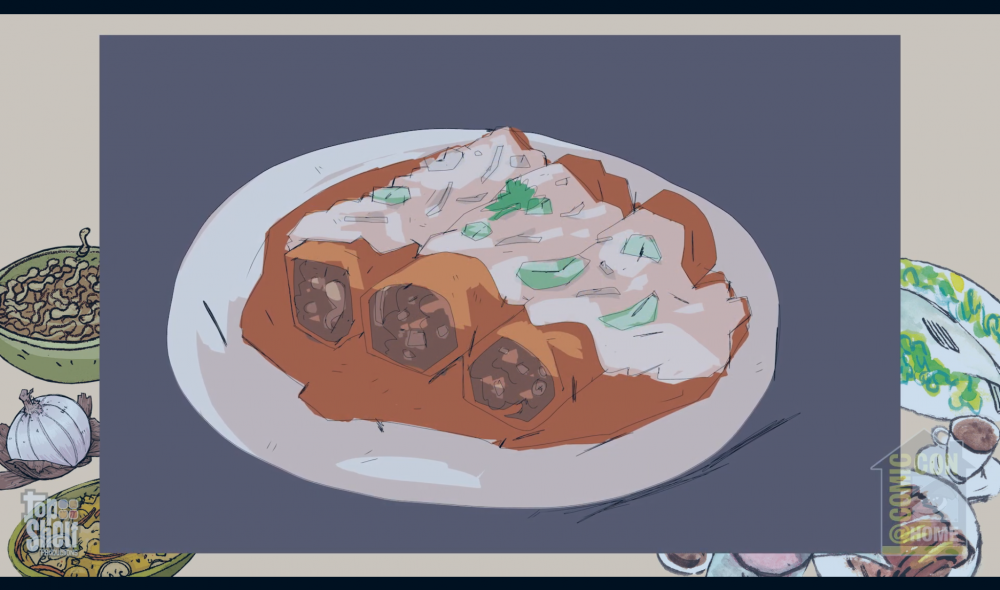
Miss any of The Beat’s earlier ComicCon@Home coverage? Find it all here!


